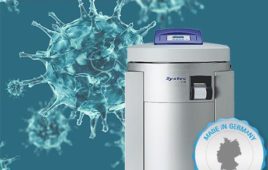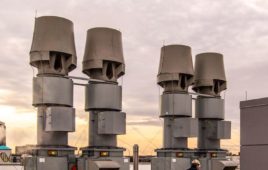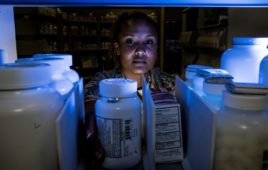We built an ISO Class 7 cleanroom to serve our customers in the aerospace industry. We’ve hired engineers and operators to work in the cleanroom. Where can we resource training for our cleanroom personnel?
There are several independent cleanroom and contamination control consultants and trade industry conferences that you may contact to provide the required training. However, the cleanroom and controlled environment industries rely on two main sources for standards and best practices in cleanroom and contamination control management: the Institute of Environmental Sciences and Technology (IEST) for training best practices, and the International Organization for Standardization (ISO) for global standards.
CONFERENCE AGENDA ANNOUNCED:
The highly-anticipated educational tracks for the 2015 R&D 100 Awards & Technology Conference feature 28 sessions, plus keynote speakers Dean Kamen and Oak Ridge National Laboratory Director Thom Mason. Learn more.
The ISO 14644 global cleanroom standards established airborne particulate cleanliness classes for particle sizes ranging from 0.1 μm to 5 μm as well as design, construction, and operation of cleanrooms, mini-environments, and separative devices. Eight of these international standards are currently designated by the American National Standards Institute (ANSI) as American national standards. IEST is Secretariat of ISO/TC 209 and Administrator of the ANSI-accredited U.S. Technical Advisory Group (TAG) to ISO/TC 209. IEST is a not-for-profit organization that provides cleanroom and contamination control training to promote education and best practices. For more than 15 years, IEST has provided one-day courses on the ISO 14644 series of cleanroom standards during the annual technical meeting (ESTECH) in the spring; the Fall Conference; at IEST headquarters in the northwest suburbs of Chicago; and custom training at locations in the U.S. and other countries.
IEST also develops Recommended Practices (RPs) for the nanotechnology; contamination control; design, test, and evaluation; and product reliability industries. IEST is an ANS-Iaccredited standards developer and all the educational programs are peer-reviewed. The senior faculty members of the Education Advisory Council are industry subject matter experts who have contributed information to the current IEST recommended practices and ISO 14644 series of standards. IEST also offers educational training on recently published recommended practices in the disciplines listed previously.
The ISO standards provide the information as to “what to do” and the IEST recommended practices provide the information as to “how to do it.” Together, these non-profit organizations contribute a vast amount of knowledge and resources to the cleanroom and controlled environments industries.
Internationally, IEST (www.iest.org) is also a founding member of the International Confederation of Contamination Control Societies (ICCCS) (www.icccs.net). The ICCCS was formed in 1974 and consists of 20 countries as part of 17 member societies. The objectives of the ICCCS are to promote best practices through the international exchange of knowledge and the coordination and promotion of standards.
At the core of ICCCS is education, and the ICCCS encourages the promotion of education and training through coordination with member societies such as IEST. The International Cleanroom Education Board (ICEB) is the education arm of the ICCCS and prepares guidelines for contamination control courses for international harmonization through accreditation. IEST is considering providing hosting within the U.S. of ICCCS accreditation courses to expand global harmonization of contamination control education.
The ICEB program operates under a number of guiding fundamental principles. One is the principle of “personal certification through examination,” meaning the emphasis is on the student and not the company. Another principle is the 75/25 rule, stating that a minimum of 75 percent must be based on an ISO cleanroom standard (which is the same across the world) and 25 percent can be localized to suit different industries to allow flexibility. Since the ISO standard is the same everywhere in the world, the goal is to train people applying the standard to have the same competency skills and expectations.
Yet, there are specific needs — such as within the aerospace community — that require flexibility in providing application-specific training. The longer term objective of IEST and the ICEB is to create common training programs to improve professional skills with globally accepted accreditation based on recognized standards.
The author acknowledges and thanks IEST staff and Conor Murray for their contribution to this article. Conor Murray is a principal in his own company, 3dimension Cleanrooms, and is a subject matter expert on cleanrooms and contamination control. He is Chairman of the Irish Cleanroom Society and Head of Delegation for Ireland at TC 209. He is a past Chairman of the ICCCS and the inaugural chair of the ICEB.
Jan Eudy is a Cleanroom/Contamination Control Consultant as well as a Fellow and Past President, Institute of Environmental Sciences and Technology. She is located in Carolina Beach, N.C. and can be reached at [email protected].
This article appeared in the July/August 2015 issue of Controlled Environments.



